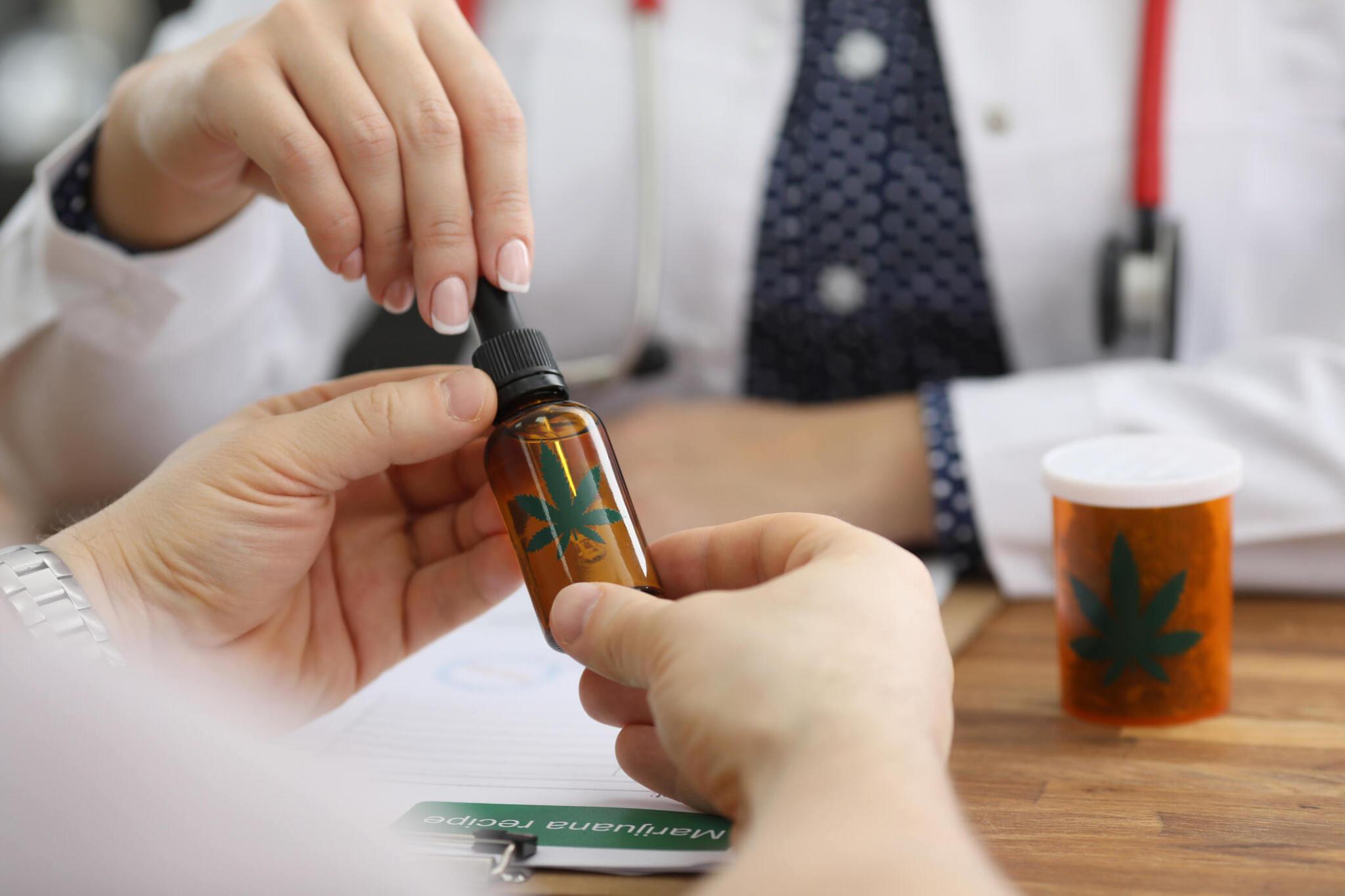
Cannabidiol (CBD) has rapidly emerged as a staple in the wellness and medical communities, thanks to its broad therapeutic potential. Unlike its cousin THC, CBD is non-psychoactive, meaning it doesn’t produce the “high” commonly associated with cannabis. This unique feature has made it an appealing option for those seeking relief from a variety of conditions without the mind-altering effects.
CBD’s popularity has surged as more individuals turn to natural products for health and wellness. It’s being incorporated into everything from dietary supplements and skincare products to therapeutic oils and edibles. The versatility of CBD, coupled with its safety profile, has contributed to its widespread acclaim.
What the Research Says About CBD
- Epilepsy Treatment: Clinical studies, such as those leading to the FDA approval of Epidiolex (a CBD-based medication), have shown significant efficacy in reducing seizure frequency in rare forms of epilepsy, demonstrating the potential of a precise CBD dose in managing severe medical conditions.
- Anxiety and Depression Relief: Research indicates that doses ranging from 20 mg to 600 mg of CBD can reduce anxiety in both clinical and experimental settings. The CBD dosage for anxiety suggests a wide range of effective doses, highlighting the importance of individualized dosing.
- Chronic Pain Management: Studies suggest that CBD oil dosage plays a crucial role in managing chronic pain, with systemic reviews pointing towards its benefits in conditions like fibromyalgia and neuropathic pain. The CBD dosage for pain can vary, but topical applications like 1500mg CBD cream for pain show promising localized relief.
- Inflammation Reduction: CBD’s anti-inflammatory properties have been explored in various studies, indicating that doses such as 20 mg of CBD could be beneficial in reducing inflammation related to conditions like arthritis, potentially offering a natural alternative to traditional anti-inflammatory medications.
- Improving Sleep Quality: Research on CBD dose for sleep and anxiety suggests that cannabidiol may improve sleep patterns. The findings are mixed, with some studies suggesting doses ranging from 40 mg to 160 mg of CBD may aid in improving sleep quality.
- Back Pain Relief: The use of CBD gummies for back pain as an oral supplement is gaining popularity. While more research is needed to establish effective dosages, anecdotal evidence suggests they may offer a convenient way to manage pain symptoms.
Figuring Out the Right Amount for You
- Consult with Healthcare Professionals: Before starting CBD, especially for specific health conditions, consulting with a doctor or a healthcare provider can provide personalized advice and ensure safety, particularly for individuals on other medications.
- Understand Product Types and Concentrations: Recognize the difference in CBD concentrations across various products like oils, gummies, and creams. For example, 1500mg CBD cream for pain may require a different dosage approach compared to CBD oil or gummies.
- Adjust According to Effects: Pay attention to your body’s response. If the initial dosage doesn’t meet your needs, adjust it slightly. However, always wait a sufficient amount of time (a few days to a week) to assess effects before making changes.
- Record Your Dosage and Reactions: Keeping a journal of your CBD dosage, along with any effects or side effects, can help you find the optimal dose more effectively.
- Dosage by Condition: Be aware that recommended dosages may vary significantly based on the condition being treated. For instance, CBD dosage for sleep and anxiety might differ from CBD dosage for pain and inflammation.
- Use Dosage Calculators: Many reputable CBD brands and health websites offer dosage calculators, which can suggest a starting dose based on your weight, condition severity, and CBD concentration in the product.
- Be Mindful of Delivery Method: The effectiveness of CBD can vary depending on whether it’s taken as an oil, edible, or topical cream. For example, CBD gummies for back pain might offer a different absorption rate and effect onset time compared to CBD oil.
- Start with Standard Doses: For beginners without specific therapeutic targets, starting with a standard dose (often suggested as 20 mg of CBD) and adjusting based on personal experience can be a practical approach.
- Safety First: While finding the effective dose, it’s crucial to monitor for any adverse effects, keeping in mind that while CBD is generally well-tolerated, individual reactions can vary.

How to Calculate Dosage
- Consider the Form of CBD: Understand the bioavailability of different forms (oil, gummy, topical) since it affects how much CBD your body actually absorbs.
- Use the “Step-Up” Method by Leinow & Birnbaum: As recommended in their book, start with a microdose of CBD and gradually increase it until you find your “sweet spot” dosage.
- Factor in the CBD/THC Ratio: For products containing both CBD and THC, consider how the ratio affects the dosage needed for therapeutic effects without unwanted psychoactive effects.
- Mathematical Calculations: Learn to calculate the mg of CBD per dose, e.g., a 30ml bottle of CBD oil with 1500mg CBD means each ml contains 50mg of CBD. Adjust your dosage accordingly.
- Track Your Progress: Use apps or journals to track dosage, effects, and side effects, which can help in refining the dosage over time.
- Understand Tolerance Levels: Over time, you may develop a tolerance to CBD, requiring adjustments to your dosage to achieve the same effects.
- Consult Dosage Guidelines: Some organizations or medical professionals provide general guidelines for specific conditions, which can serve as a starting point.
- Lab Reports and Quality: Check the product’s lab report (COA) for exact CBD concentration, ensuring accurate dosage calculations.
Dosage Guidelines by Condition
CBD Dosage for Chronic Pain:
- Start with a low dose, such as 20 mg of CBD daily. If relief is inadequate after one week, increase the dose by 5 mg. Repeat until you find your optimal dosage.
- For topical products like 1500mg CBD cream for pain, apply a small amount to the affected area and observe the effects; adjust as necessary.
CBD Dosage for Anxiety and Sleep:
- A starting CBD dose for sleep and anxiety might range from 15 to 20 mg, taken 1 hour before bedtime or when anxiety levels rise.
- Adjust the cannabidiol dosage in small increments weekly until you find relief without side effects.
Special Considerations:
- The efficacy of 20 mg CBD doses can vary by individual. This dosage can serve as a foundational starting point for many, with adjustments made based on personal response.
- For conditions like inflammation, initial doses might be in the range of cbd dose for pain and inflammation, with adjustments made based on effectiveness and tolerance.
CBD Dosage for General Wellness:
- For those exploring CBD dosage for overall health benefits without specific ailments, a general recommendation is to start with 10-15 mg of CBD per day, gradually adjusting as needed.
CBD Gummies for Specific Conditions:
- When considering CBD gummies for back pain, starting with a dosage of around 20-30 mg per day can be effective. Monitor your body’s response and adjust the dosage accordingly.
Is It Possible to Take Too Much CBD?
- Safety Profile: Present evidence on the general safety and tolerability of CBD, even at higher dosages.
- Potential Side Effects: List possible side effects of excessive CBD intake, highlighting that they are typically mild.

Talk to Your Doctor
- Importance of Medical Guidance: Stress the necessity of consulting with a healthcare provider before starting CBD, especially for individuals with pre-existing conditions or those taking other medications.
- Integrating CBD with Other Treatments: Discuss how CBD can complement existing treatment plans under a doctor’s supervision.
Conclusion
In wrapping up our guide on CBD dosing, it’s crucial to underscore the significance of personalized dosage. Everyone’s body chemistry is unique, and factors such as weight, metabolism, and the nature of the condition being treated play a pivotal role in determining the most effective CBD dosage. Thus, a one-size-fits-all approach does not apply when it comes to CBD consumption.
Moreover, while CBD holds promising potential for various health and wellness applications, it’s essential to stay informed about both its benefits and limitations. Ongoing research continues to shed light on CBD’s efficacy and safety profile, offering valuable insights that can help optimize its use.
Frequently Asked Question
1. What is CBD and how is it used?
CBD, or cannabidiol, is a non-psychoactive compound found in cannabis that has become popular for its potential health benefits, including pain relief, anxiety reduction, and improving sleep quality, without producing a “high”
2. How do I determine the right CBD dosage for me?
The ideal CBD dosage varies depending on factors like your weight, metabolism, and the condition you’re treating. Starting with a low dose and gradually increasing it while monitoring your body’s response is recommended
3. Can CBD help with anxiety and depression?
Yes, research suggests that CBD can help reduce anxiety and depression. Dosages vary, with some studies using doses ranging from 20 mg up to 600 mg. It’s advisable to start with a smaller dose and adjust as needed
4. Is CBD effective for pain management?
CBD has been studied for its potential to manage pain, including chronic pain, arthritis, and nerve pain, with varying dosages recommended based on the severity of pain.
5.How can CBD improve sleep?
CBD dosages of around 25 mg have been reported to improve sleep quality. Some individuals might find a melatonin-infused CBD oil beneficial for promoting relaxation and sleep.
6.What forms of CBD are available?
CBD is available in several forms, including oils, edibles like gummies, capsules, topicals like creams and balms, and vapes. The choice of form can affect the bioavailability and overall effectiveness of CBD.
7.What should I know about CBD bioavailability?
Bioavailability varies by consumption method; for example, CBD oil drops have a bioavailability of 20-30%, while CBD capsules and edibles have a lower rate of 5-15%, and vapes can be as high as ~56%.
8.Is it necessary to consult a physician before using CBD?
Yes, consulting with a healthcare professional before starting any CBD regimen is crucial, especially if you have existing health conditions or are taking other medications.
9.Are there side effects to taking CBD?
While CBD is generally well-tolerated, potential side effects include dry mouth, diarrhea, reduced appetite, drowsiness, and fatigue. It’s also known to interact with some medications.
10.Can pets benefit from CBD oil?
Yes, CBD oil can also benefit pets suffering from conditions like pain, arthritis, and anxiety. Dosages for pets should be based on their weight, with a general guideline of 1mg of CBD per 10lbs for dogs.
